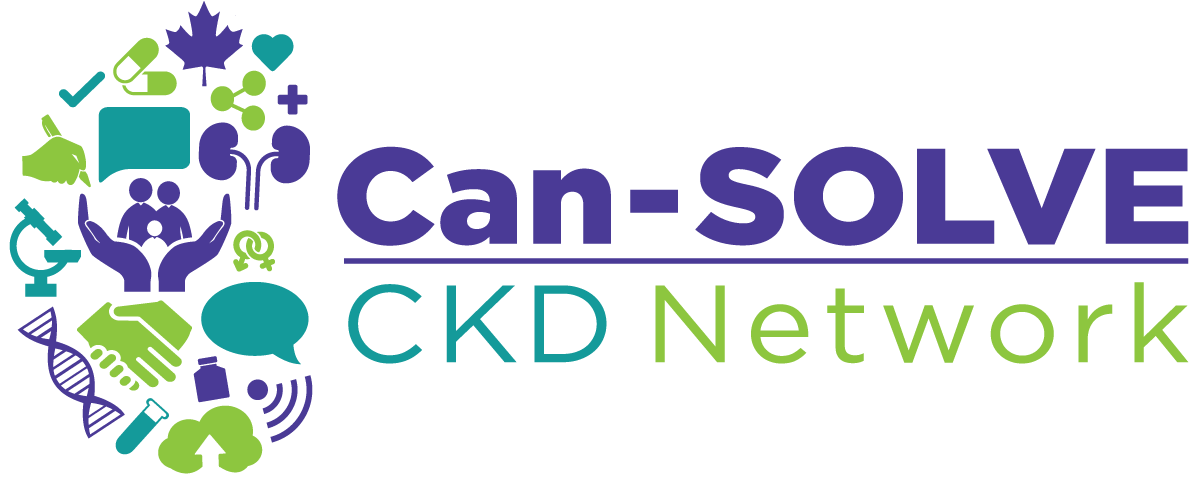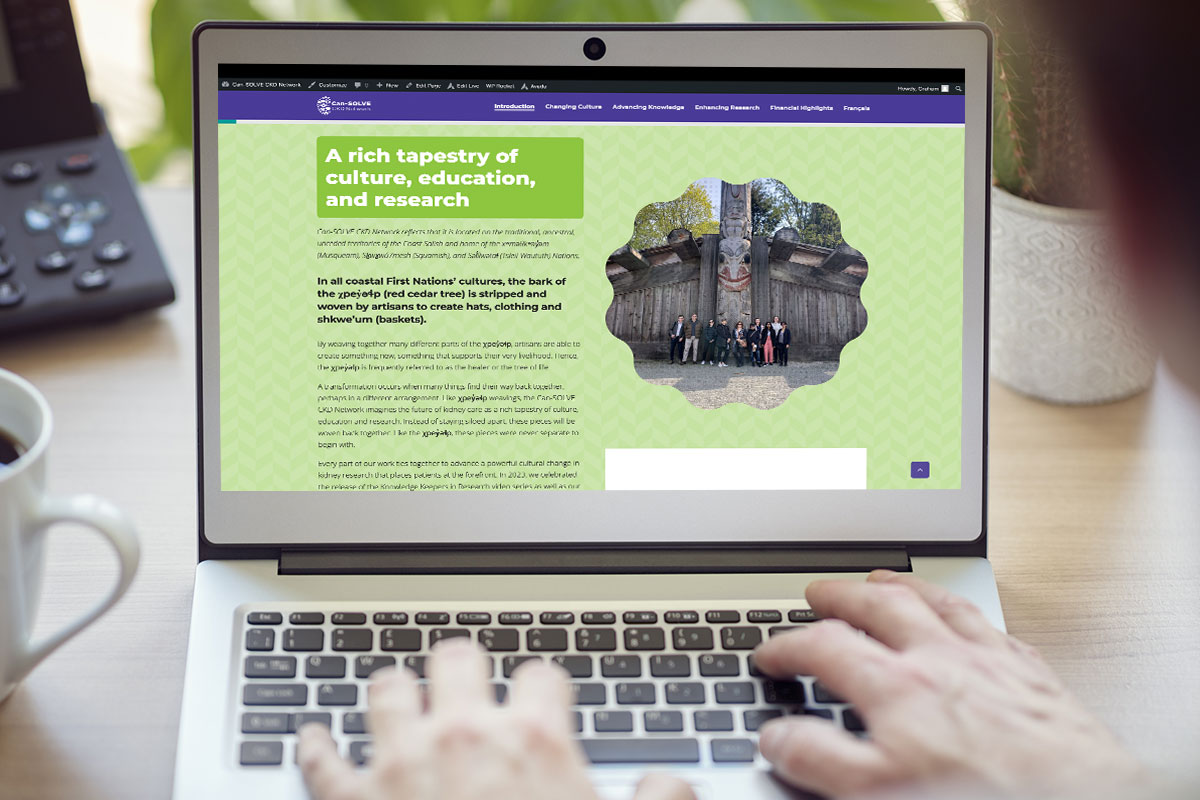Our research aims to improve the lives of people living with kidney disease.
We have created a robust national research program based around three themes that matter most to patients:
- Identifying kidney disease earlier
- Developing better treatments
- Delivering innovative patient-centred care
Our 18 research projects are generating new knowledge and tools that will impact kidney health care for years to come. Can-SOLVE CKD research is already improving living donor kidney transplantation, supporting CKD self-management, and enhancing patient-reported outcome measures in jurisdictions across Canada.
Patients have been central to these accomplishments. In partnership with our Patient Governance Circle, we have created a system by which research is conceived and implemented collaboratively. By working together, our research projects will close the gaps in knowledge and care to deliver better kidney health.
Theme 1
Identifying kidney disease earlier
Theme 2
Developing better treatments
Theme 3
Delivering innovative patient-centred care
Connect with us!
Subscribe to learn more about what we do, why it matters, and how you can get involved!






